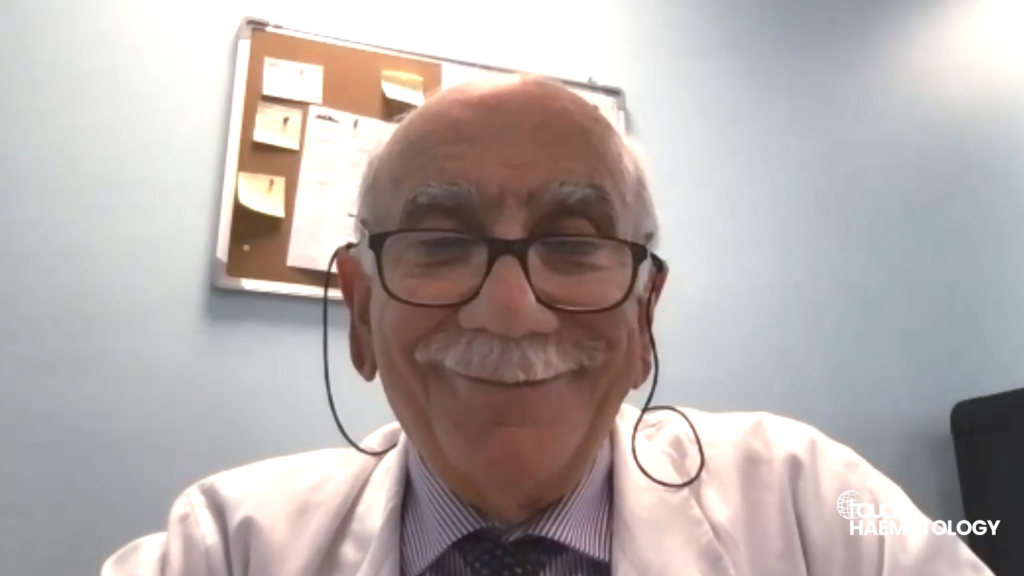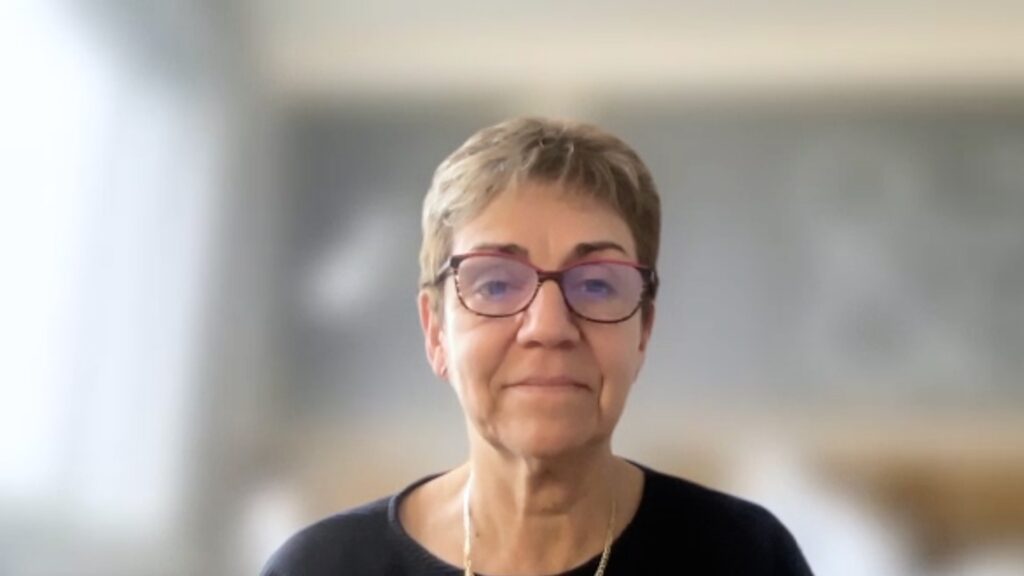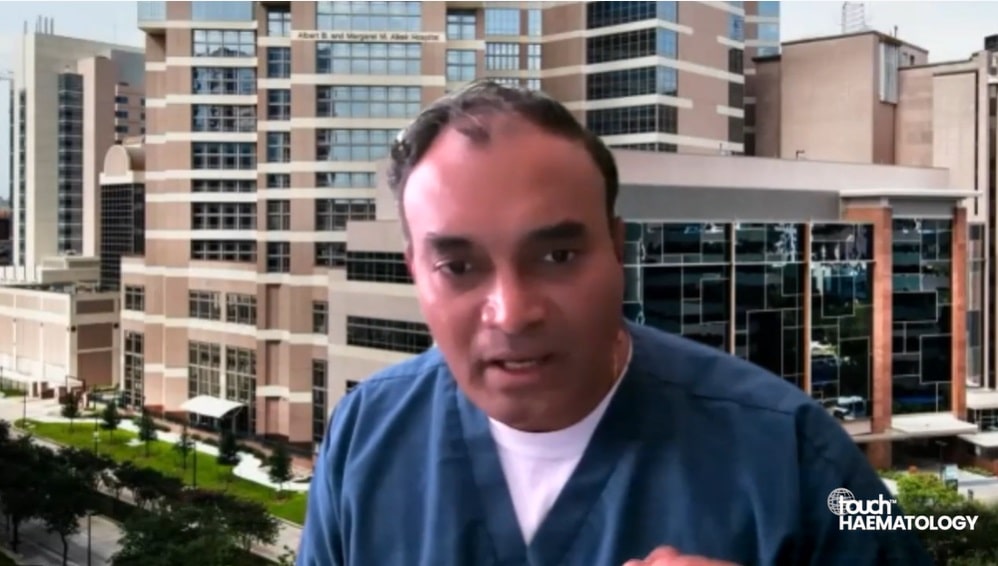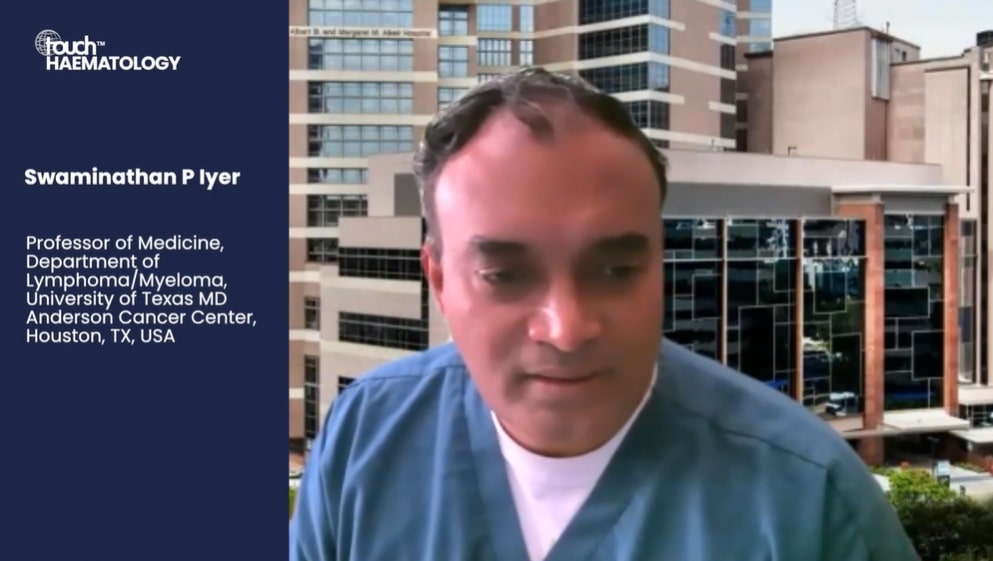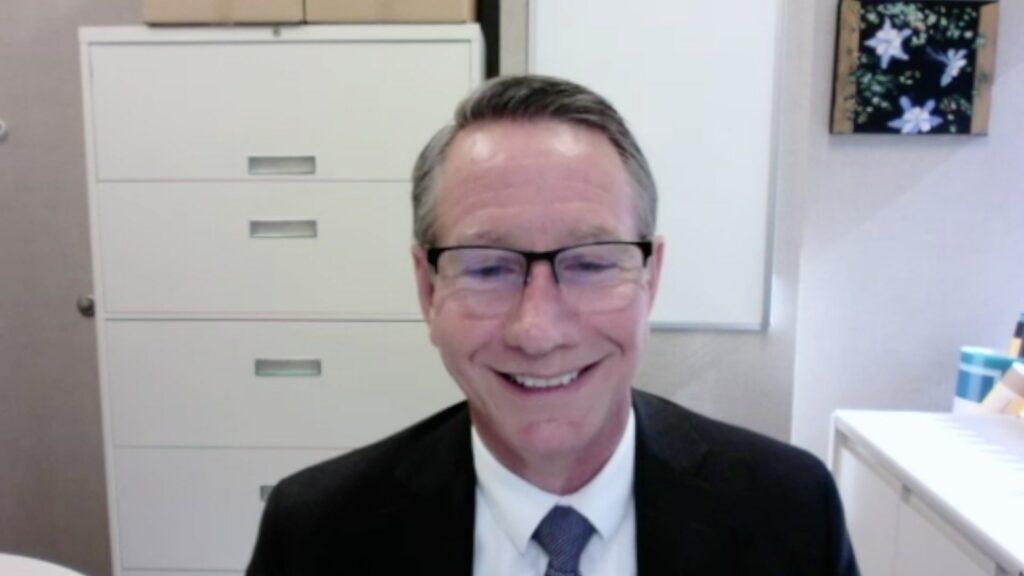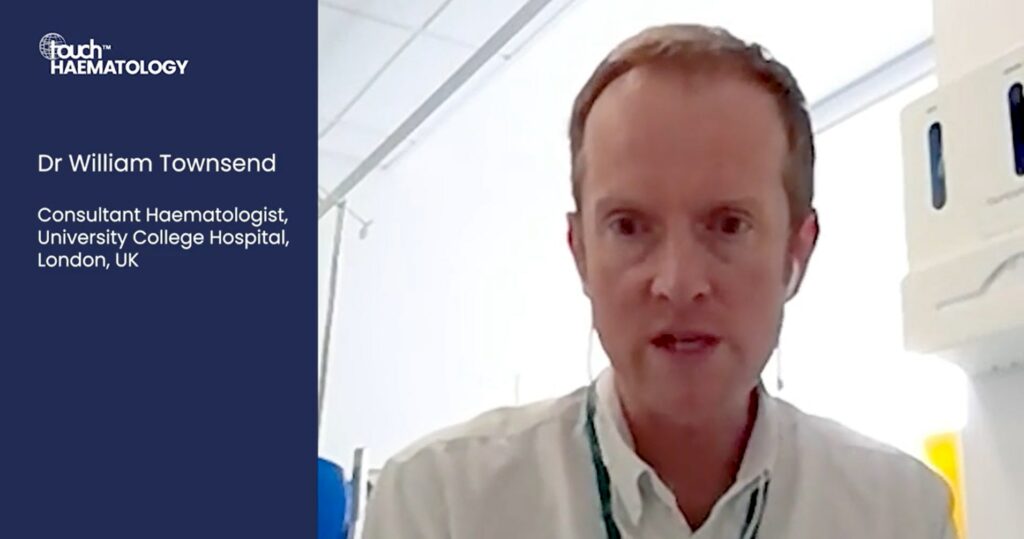Visionary Voices: Season 1, Episode 5
In our latest episode, we delve into the world of space medicine to explore how drug crystallization in microgravity could revolutionize biologic drug administration. Joining us is Dr Katie King, CEO of BioOrbit, to discuss the science, challenges, and technological advancements that could make space-based drug production a reality.
[Transcript] Hello, and welcome to our Visionary Voices podcast series… [Nicky Cartridge] Hello, and welcome to our Visionary Voices podcast series. I’m your host, Nicky Cartridge, Head of Content here at Touch Medical Media and in today’s episode, we’ll be venturing into the fascinating possibility of drug manufacturing space. Today, I’m joined by my colleague and co-host David Noble, Chief Operating Officer at Touch Independent Medical Education and all-round science enthusiast. Thanks for joining, David. Although knowing you, I think it would have been pretty impossible to keep you away. [David Noble] Yes. It definitely would, Nicky. Thanks for the introduction. Yes. I have a lifelong love of science, as a microbiologist, molecular biologist, and biochemist. I’m all about the science and when I was introduced to our guest, who I’ll leave you to introduce in a moment, I was absolutely fascinated by what she’s doing, real cutting edge science and actually we’ve already spent an hour talking about the science. So, I will hand back to you, Nicky, and really looking forward to hearing more. [Nicky Cartridge] Oh, thank you, David. Well, I’m delighted to welcome today’s guest, Dr Katie King, who is a cofounder and Chief Executive Officer at BioOrbit, a UK startup investigating the potential to manufacture drugs in space. Katie recently received the 2024 Innovator Award at the Every Woman in Tech Awards. Welcome, Katie, and thanks so much for joining us. [Dr Katie King] Hi both. Thank you so much for having me. I’m really excited to speak about Orthoics Space Medicine. [Nicola Cartridge] We are really excited to hear more. So I studied medicinal chemistry many moons ago, and I just have absolutely no idea how you would go about drug synthesis in space. It’s completely mind blowing. Could you share your journey into this field of research? [Dr Katie King] Yeah. Of course. So my background was in nanotechnology. That was what I did my PhD in with an application in nanomedicine. But well before that, I just fell in love with space. I think I was a child and saw this film in the IMAX, called Space Station, and there was this water globule floating around in microgravity and it was from then that I thought, wow, this is so cool. I want to do that. I want to see that. So, yes, this passion for space was in the background, and I was fortunate enough to have an internship at NASA, during my master’s, pre PhD. And I was like, okay, well, I really want to work in the space industry, but I’m not sure what options are available. So I kind of didn’t take it too seriously until halfway through my PhD. And I thought, you know what? I know I really want to work in this sector. This is such an exciting industry, where there’s change every single year. And was like, alright. I’m going to get a job as a scientist in the space industry, outside of academia preferably. And I started to try and find a job, and I knew exactly what I wanted to do. It was like microgravity research, for life sciences, etc. And there just weren’t any jobs in that area in the UK. There were in the US, but green card issue. So I was like, what? How can this, how can this job not exist? And I remember speaking to some recruiters and they were like, that’s not here. You can’t find that here, unless you want to work for the European Space Agency, which is a very different ballgame. And I was like, oh my gosh. What? So after that, I went to what’s called the International Space University. Again, I was like, alright, I’m gonna learn more, make some contacts and hopefully still then I want to find my job as a space scientist. And there, that is when BioOrbit was born was during the time at ISU, International Space University. And we were tasked – there was a team of us – and we were tasked with looking for an area of microgravity research that could have the most positive impact on humankind and the crystallization of protein drugs and how that could change how these drugs can be given to patients was very apparent. And we thought, you know, we’re looking at, alright, well, well, how could this be utilized? What are the blockers as to why this isn’t happening right now? And it became about accessibility, etc etc. But that part of the industry, as we will come on to, is completely changing. So then, like, rather than keeping it as this theoretical task, it was like, well, why don’t we – we have to make this real. We have to push and actually make this real as we see it’s possible. So that was where BioOrbit was born. And, yes, the rest is kind of history at the moment. It’s a lot of hard work, and we’re going for launch next year. So watch this space. [Nicky Cartridge] Super exciting. It feels like you found sort of the perfect field that merges all of your interests together. [Dr Katie King] For sure. I think I’ve always been a big believer that space should be used for the benefit of humans on Earth, And I think the media covers it in a very poor way, especially when it comes to space tourism, etc., which completely misses the point in my view. So being able to do this and be able to make an impact combining both health and space is just a dream come true. [Nicky Cartridge] Fabulous. So you’ve mentioned really briefly microgravity and how that can impact on crystallization. Could you delve into the science behind that a little bit more and give us an idea of why crystal quality is so important, particularly in drugs. [Dr Katie King] Yeah. Sure. So I will go into a little bit of nerdy detail here, because I find it fascinating. So gravity is obviously something that we experience all the time, but it affects certain phenomena quite a lot. One of those being sedimentation and also convection currents. So gravity and the change of density as things are getting warmer, etc. causing these convection currents, that’s a gravity induced phenomena and when it comes to crystallization, as a crystal’s growing, small amounts of heat are given off as the crystal’s growing. And that can cause tiny local convection currents. Then once the crystal gets to a certain size, it also then sediments down to the bottom. And both of these phenomena effectively cause a lot of motion around that growing crystal, which can then make it harder for the next molecule or whatever it is to get into its right orientation for the crystal to grow. So when we’re looking at small molecules, this doesn’t have much of an impact. They’re small. They can quite easily get into place. But when we’re dealing with antibodies and proteins, they’re much more complex, much more flexible, and it’s at those levels where these phenomena start to have an effect on your resulting crystal. So on Earth, when we crystallize these antibodies, we can get a lot of imperfections in there as the incoming antibody isn’t getting into its right place and we have a wide range of sizes. But if you do the exact same process in microgravity, sedimentation disappears, convection currents disappear, and the resulting crystal is very different. So you have a uniformity, you have far, far fewer imperfections and the size range is much, much tighter. And this is now good for pharmaceutical use because you can have that reproducibility. You can control that dosage more than than if you have a batch where you’ve got loads of different sizes and imperfections, etc etc. So it now can be used pharmaceutically. But if you were to do it on Earth, you wouldn’t get that same quality. So the question then becomes, okay. Well, even though the science has been proven, how do we mass manufacture this? And then it becomes an engineering problem. [David Noble] This is fascinating for me because I started out in the very early development of monoclonal antibodies. In fact, I helped develop the very first chimeric, and then the very first humanized antibody. And the challenges we had then were administration, of course, with chimeric antibodies, you ultimately generate resistance to that antibody. And in clinical practice, there are obviously lots of challenges, particularly around large molecules. And we see this in medical education where we’re dealing with helping physicians understand the limitations of the treatments that they’re providing, but also trying to open their eyes to what’s coming in the future. Hence, this topic, clearly, could potentially have a big impact on the whole patient experience. You could be getting to the point where, you’re able because of what you’ve just described, you’re potentially able to administer drugs that we would normally administer IV. You would potentially be able to administer them subcutaneously. And I think that would have a massive impact on patient time. You could be doing that at home.You could be administering drugs, complicated drugs, biological therapy drugs, just as you would insulin, and that would really have quite a significant impact on the cost of health care. What’s your kind of vision for the future of that? [Dr Katie King] Yeah. Great question. And exactly you’re right. Like, being able to have that paradigm shift so that people can treat themselves at home rather than needing to go to hospital is exactly the challenge that we’re trying to help change and bring that paradigm shift about. So, yes. And my vision for that is that BioOrbit will be one of those key players and key enablers in transitioning from IV to subcutaneous administration to change patients quality of life. So our tagline is, hospital to home via space, because that’s what we’re trying to do is make sure that treatment can come to home but just putting you some space. So, my vision is that we will have mass manufacture of these protein crystals in space, and that supply chain is just like an automated, very regular, and standard part of the supply chain into big pharma companies so that we can see patients being able to treat themselves at home in their own comfort. [David Noble] It’s an incredible vision, but actually could be a reality within the next few years. [Dr Katie King] So true, and it sounds very sci-fi, and I appreciate it when people are like, how on earth is that gonna happen? Well, first of all, not on earth. The space industry is changing so rapidly, and SpaceX has been a step change in how we can use space. The cost of launch has come down by one to two orders of magnitude already since space shuttle days. So if what used to cost a hundred thousand dollars to get a kilo to space now costs around a thousand dollars, it suddenly opens up the opportunity for different business models, etc, utilizing space. And the price of launch is only decreasing. It’s coming down more and more, which makes space far more accessible. But when we’re talking about manufacturing, you need to be able to bring it back. So you need the other part of the infrastructure, not just getting up there. You need the second, the return ticket, back down, and what’s really cool is that there are multiple companies working on reentry vehicles to safely land things back to Earth, probably about at least a dozen, if not more. And they’re providing that part of the journey. So if you think about just infrastructure and logistics, as you would on an as you would on Earth, okay, we need to get a to b and then back again. That’s all happening in the space environment now. So give it two years. That will be stable, up and running, and then we’ll be able to use it. So it’s really not as far-fetched as people first think. [David Noble] I happened to mention on Twitter that I was talking on this subject, and I had one very interesting question from a fellow scientist – it was kind of two questions, but really was, one, are we really ready to start manufacturing drugs in space? But secondary to that, are we ready to start developing drugs in space? [Dr Katie King] Yeah, those great questions. I’d say that the development is already underway. That has been started on the ISS in terms of seeing how, seeing how different disease models, etc, progress in a space environment and then seeing which drugs can slow down those processes, etc, and then bring them back to Earth. Like osteoporosis as an example, because bones, etc, they react very differently in a microgravity environment. So what could we develop in that environment that could be useful back on Earth? So in terms of development, yes – and there’s a lot of money going into that now that the accessibility is easier. We can start increasing end numbers. We can start doing more and more experimental repeats that that previously would have been a higher cost. So I think the development is underway, and it is progressing. When it comes to manufacturing, I mean, yes I believe it’s possible, obviously. That’s why I’m why I am doing this. There are definitely hurdles. It’s not gonna be easy, but things that are worth it aren’t easy, and we have to push and get over those hurdles. So, yes, it is possible, but it will take work. And that’s where we come in. [Nicky Cartridge] I think, like you say, when you’re outside of the space industry, it all seems so sci-fi. But then as you talk about the improvements in access and reentry, it kind of starts to feel like, wow, this really does have legs. But what I’m particularly interested in is sort of the logistics of creating some kind of manufacturing factory or however it looks in space. Because I think from my background and a long time ago as a chemist, when I think of drug manufacturer, I think of these big factories. How would that work in space? [Dr Katie King] In space. Yeah. I mean, it’s true. When we think of these factories, we think of these massive, massive buildings as we’re going down the motorway, etc. So here, we’re starting off with just crystallization. So we’re not doing the full chemical process of making the antibodies, but we’re taking what has been made on Earth to space and then forming the crystallized version of it. So that’s the first step. We’re just taking that step off the manufacturing process. So that will be done in small boxes. They’re about the size of the microwave, half the size of a microwave, and we’ll be doing the crystallization process, etc, and we will have it a little bit like I kinda think of it as data like data centres where you have all of the hard drives, etc, just copy pasted for walls and walls and walls. Ours will be similar. We’ll have lots of our mini microwaves, plugged in doing the crystallization process, and we’ll have several of them forming the crystallized product. I think, like, that’s the starting point. I think it will be interesting to see how much more of the manufacturing process we do take into space, i.e, is it beneficial to do the antibody production itself in space? What benefits does it have if it’s cost or from a science perspective? Right now, I’m not clear on that, but the crystallization is obvious. But it will be interesting to see how it expands over the next couple of years.. [David Noble] Yeah, it really does sound like we’re getting to the point where we’re fully going to embrace the kind of space era of medicine, really. It seems like the next natural evolution. But I guess the big question is around the timeline, particularly for BioOrbit and, eventually, you know, producing pharmaceuticals in space on the scale at which you would need them to be available to a larger population. Presumably, that will involve some partnering with pharmaceutical companies. I see you’ve got lots of grants and innovation awards both for BioOrbit and personally. So there’s a lot of interest from industry on it. So how do you kind of see that timeline panning out? [Dr Katie King] Yeah. So, for us, the next two years as in validating the hardware itself. So we’re building a piece of hardware that has not been tested in space before. So we need to make sure that it works and it works well as we want it to. And then it will be about going into manufacturing. So first, it will be, like, smaller batches as a test level. So I’d say probably on the single kilo, mass wise, something like that, that can then get used in some early stage tests before then going into the mass mass manufacture. So that again will be ensuring that, that the crystals are reproducible, that they work well in a clinical environment, etc. And once that’s then passed, it will then be copy pasting effectively the microwave so that we can then hit the quantities that are then needed. In terms of timelines, that middle step in terms of making a kilo or two off the crystals, I think that feels like it could be a few years to five years. It really depends on who we’re working with at that point. But I would say by the end of the decade, we will be there. And I’d say by early the early twenty thirties, we have our chance of being in mass manufacture for at least one drug by then. [David Noble] That just blows my mind. That is just so incredibly exciting to think that by the time we get to twenty thirty, we could be consuming medicines that are manufactured in space. I think those predictions are something we’re gonna watch, watch very, very, very carefully. Now, obviously, the potential for impact on pharmaceutical development and improved patient outcomes is very, very significant indeed, and it will be very interesting to see how the industry continues to keep pace with these developments. Katie, I could speak to you for hours. Okay. And I’m going to just remind you, you have promised me a personal tutorial on the biophysics and biochemistry of it all. [Dr Katie King] Deal. Deal. [David Noble] That I will hold you to. We’ll get a whiteboard. So, yeah, I’m absolutely fascinated by it. There is so much more we could unpick, and we’ve only got a limited time on this podcast, but there is so much more we could unpick. Maybe we should do a follow-up in a couple of years to see where it’s come to. [Nicky Cartridge] I think that would be amazing. We’ll be following really closely, but it would be lovely to have a follow-up in a few years’ time just to see how things have advanced. [Dr Katie King] That would be great. I would welcome that wholeheartedly. [Nicky Cartridge] Wonderful. Well, thank you. Thank you, Katie, so much for your time today, and thank you, David, as well. Just as we wrap up, please remember if today’s episode spiked your interest, please do subscribe and share your thoughts with a review. Your insights are crucial for helping us refine our content and continue to deliver the stories and information you love. [David Noble] Yeah. We genuinely love to hear from you. You can find us on LinkedIn by searching Touch Medical Media and follow our podcast series on Podbean under Visionary Voices, Insights from Healthcare Professionals. [Nicky Cartridge] Thank you again both, and that’s all for today’s episode. Until next time. Goodbye. [David Noble] Thanks. Goodbye

Dr Katie King is the CEO of BioOrbit, a company building a pharmaceuticals factory in microgravity to revolutionise cancer treatment. BioOrbit aims to bring a paradigm shift to the administration route of cancer treatments. Much like diabetics self-inject with solutions of crystalline insulin, through crystallising antibodies in microgravity, subcutaneous derivatives of anticancer treatments can be formulated, enabling cancer sufferers to self-inject at home. Katie completed her PhD in nanomedicine at the University of Cambridge in 2022, has worked at NASA, AstraZeneca and spent several years as an RAF volunteer reservist. She is a strong believer that science in a microgravity environment can be used to accelerate healthcare and drug development on Earth, and recently won the ‘Innovator Award 2024’ at Everywoman in Tech Awards and Codex World top 50 Innovators ‘Top Female Innovator’. Her vision is to see BioOrbit as the go to manufacturing line and research facility in microgravity.
This content has been developed independently by Touch Medical Media. Unapproved products or unapproved uses of approved products may be discussed; these situations may reflect the approval status in one or more jurisdictions. No endorsement of unapproved products or unapproved uses is either made or implied by mention of these products or uses by Touch Medical Media. Views expressed are the speaker’s own and do not necessarily reflect the views of Touch Medical Media.

